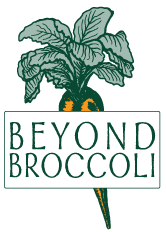Have you ever tried to change a habit related to food or eating?
What I’m going to share with you today applies to any behavior ch ange. I’m going to use a food example that most of us can relate to as eaters entering the holiday season.
ange. I’m going to use a food example that most of us can relate to as eaters entering the holiday season.
Imagine this scenario:
You decide this year that you are going to take it easy on sweet treats throughout the holidays. Not only do you feel better on a daily basis when you keep sweets in balance, but this change is consistent with your long-term health goals.
You go to work and shortly after you arrive a co-worker walks in with a plate of home-baked cookies – your favorite kind. And there are a lot of them. You graciously accept a cookie then immediately start criticizing yourself for eating it. That voice inside starts in: “Not even an hour into the workday and you’ve eaten a cookie, so much for that healthy eating goal.”
Then you have a second cookie. The voice gets louder, and harsher. By the time lunch rolls around you’ve lost count of how many cookies you ate. You go out to lunch and order dessert after your cheeseburger and fries because at this point you have “blown” your healthful eating plan for the day.
You have just experienced a well-known behavioral psychology phenomenon called the “What-the-Hell Effect.” This cycle of indulgence-regret-greater indulgence was first described by psychology researchers Polivy and Herman.
Now I want you to think about what happens in these “What-the-Hell” situations for you. What are some of the things you tell yourself?
The most common response I hear from my clients is “I have no willpower.” They believe they “cave in” to temptation because somehow they just don’t have enough willpower or their love of food is so powerful they cannot resist that first cookie. They are convinced that first cookie paves the way to “What-the-Hell.”
The reality is that the initial decision to revert back to an old habit, to eat that first cookie, is NOT what leads to the What-the-Hell behavior. It is our feelings of guilt, shame, loss of control, or loss of hope that follow the first relapse that lead us to continue the path away from our longer-term goals.
According to Kelly McGonigal, a psychology researcher at Stanford who studies Willpower, to break this “What-the-Hell” cycle of indulgence-regret-greater indulgence we need self-forgiveness. We may think guilt motivates us to correct our mistakes but it’s just one more way that feeling bad leads us to give in.
Now here is where things get really interesting. There is another important factor in this scenario: your brain.
Some of you may be familiar with neurobiologist Dan Siegel’s “Hand Model of the Brain” (if not click here). The limbic area of the brain is where our “fight/flight” response starts when we are faced with a potential physical or emotional threat. Dr. Siegel calls this the “lower brain”.
The cortex, including the prefrontal cortex or the “upper brain,” covers the limbic area, and enables us to reason and to see the bigger picture –specifically our longer-term goals. Decisions from our lower brain are impulsive, short-sighted and reactive.
When we berate ourselves for eating the cookies, we engage the stress-response in our lower brain and set ourselves up to continue not acting in accordance with our longer-term goals. Blood actually diverts away from the cortex or upper brain.
When we beat ourselves up mentally, our brain works against us!
Study after study of adults shows that self-criticism is consistently associated with less motivation and worse self-control.
Self-compassion – being supportive and kind to yourself, especially in the face of stress and failure, is associated with more motivation and better self-control.
Psychologist Kristen Neff describes 3 core components of self-compassion:
- Self- kindness (treat ourselves as we would a loved one who is struggling)
- Recognize our shared humanity (we are all imperfect –connects us)
- Mindfulness of our inner critic and our discomfort (to respond differently we first must be aware of what is happening)
Going back to our example of the cookie, what if your initial response is “wow, that cookie is delicious” and you eat it slowly, savoring the taste, appreciating that your co-worker made this cookie from scratch?
Afterwards when you are tempted to have another cookie (or 5), you take a few deep breaths instead. You gently remind yourself that enjoying a cookie here and there is consistent with your longer term health goals, but wolfing down 4 more cookies right now probably isn’t. You don’t beat yourself up for eating that first cookie. You are human and many humans like cookies!
When your inner critic kicks in and starts screaming: “You idiot! Why did you eat that cookie? What were you thinking?” you calmly respond, “I wanted the cookie and it was delicious.” End of story. If you stay calm, blood continues to flow to all parts of your brain and you are able to remember your longer-term goals.
This self-compassionate and calm response takes away the driver of the “What-the-Hell” (WTH) effect– if there is no guilt and self-criticism, then there is nothing to escape.
As we enter the holiday season filled with all kinds of ways to tempt us away from our health-promoting self-care habits, a time when we are prone to the “What-the-Hell” effect and to impulsive decisions made by our “lower brain” due to stress, let’s think about sharing some of the compassion we give freely to others, with ourselves as well.
In addition to the many holiday stresses, alcohol, sleep deprivation and distraction can also trigger our “lower brain” and cause us to abandon our longer-term goals. In these situations we need to be extra kind to ourselves. We also need a strategy to help calm our stress response and promote resilience.
One of the simplest stress relievers is to take 3 deep belly breaths. LET’S TRY THIS – 3 deep belly breaths, each followed by a long, slow exhale. ONE, TWO, THREE.
If you were stressed and your limbic brain was threatening to take charge, those 3 deep breaths just redirected the blood flow to your whole brain. Now your cortex has a chance to be part of your decision making.
This calmness in combination with self-kindness may be your most enjoyable holiday treats ever –ones you can look back on in January with a smile on your face!


